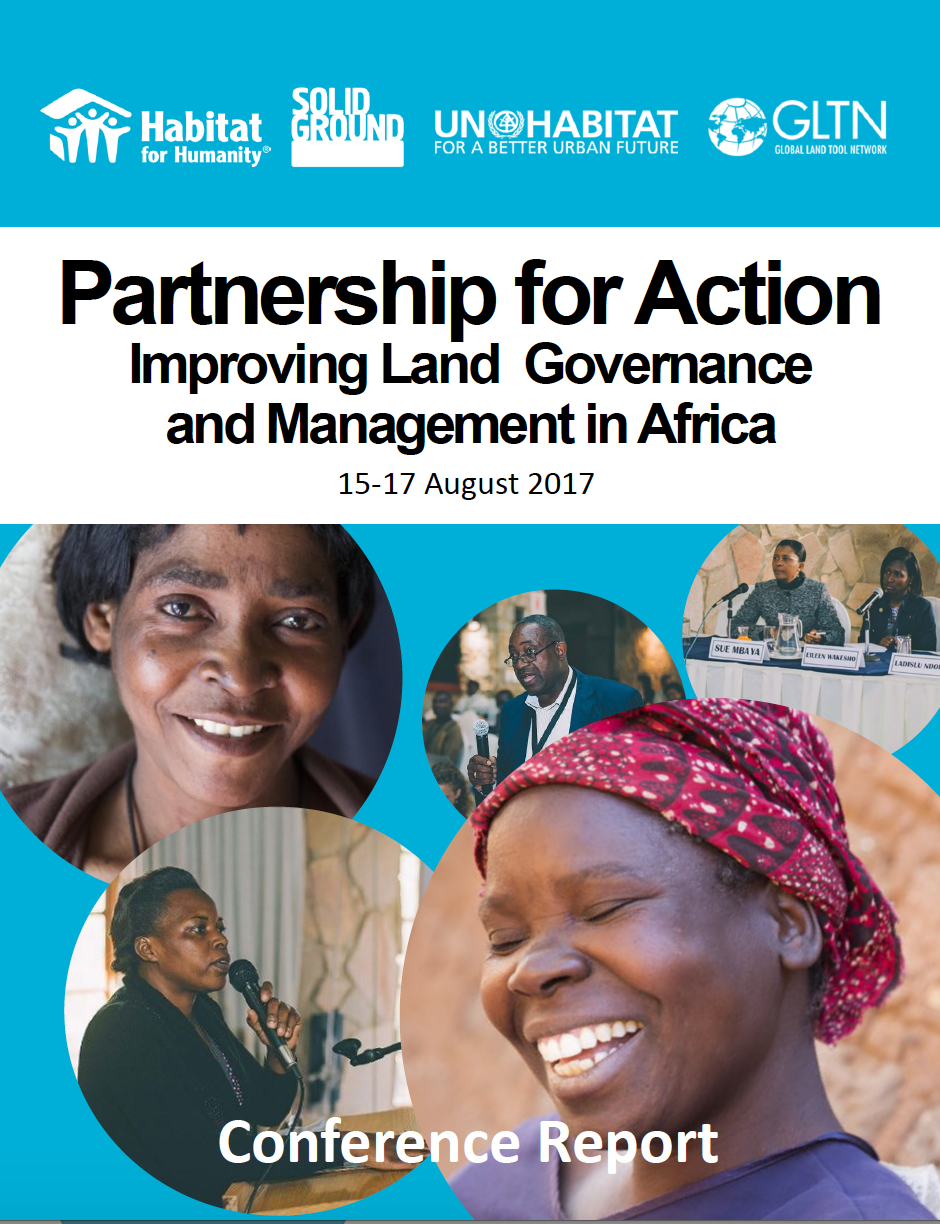This research reviews legislation and policies in Zimbabwe that have a direct or indirect bearing on the relocation of communities. The current model for large-scale investments has changed from previous models, where the majority of investment projects were undertaken by international companies…
How and why do political reactions of certain rural groups align or depart from those of others? Findings suggest that in settler societies, aspects of green grabbing (or land grabbing) may be understood as acts of “white belonging.” Likewise, green grabbing presents other groups with…
Grassroots organizations do not need to wait for the state to implement Voluntary Guidelines on the Responsible Governance of Tenure of Land, Fisheries and Forests in the Context of National Food Security (Tenure Guidelines or TGs). Rural communities can take governance into their own hands and…
The Partnership for Action: Improving Land Governance and Management in Africa Conference took place in Pretoria, South Africa from 15 - 17 August 2017. The conference was part of Habitat for Humanity’s activities under the Global Land Tool Network (GLTN) Urban CSO Cluster of UN-Habitat…
Understanding and interpretation of the CFS/FAO Guidelines on the Responsible Governance of Tenure of Land, Fisheries and Forests (Tenure Guidelines or TGs) is a key factor in communities’ capabilities for collective action, especially through the organization of land pressure groups. TGs help…
Undemocratic politics, policy making and law making interpretation and implementation, prove to be drivers of land grabbing in the four country studies presented here. Food and Agricultural Organization of the United Nations (CFS/FAO) Guidelines on Responsible Governance of Tenure of Land,…
A widely held belief in Bobira is that private land is more fertile than communal land. What came to light through the workshop information sharing is that there is no difference in the type of soil in villages compared to freehold land. Any difference in soil quality is a result of how the land…
This paper deals with strategies to overcome barriers to agricultural extension and advisory services for women in agriculture. In targeting extension services towards women in the agricultural value chain, specific challenges cited in the study surveys are: small farm sizes due to lack of…
The land in fishing communities is especially susceptible to land grabbing. Findings reveal that lawlessness, ignorance of the law, unlawful evictions and increasing conflicts in fishing and farming communities, all lead to loss of access to land and fishing grounds. This report gives background…
This project brings the international soft law instrument, the Voluntary Guidelines on Responsible Governance of the Tenure of Land, Fisheries, and Forests (Tenure Guidelines or TGs) to rural communities and, together with them, uses the Guidelines to strengthen their tenure of land, fisheries…
The study focuses on impacts of PZ Wilmar’s acquisition of nearly 30,000 hectares of land. Wilmar is a multinational company involved in land grabbing cases related to oil palm plantations in Cross River State, Nigeria. The study shows the extent of Wilmar’s infringement on communal land rights…
The research project uses the United Nations Food and Agriculture Organization (FAO) Voluntary Guidelines on the Responsible Governance of Tenure of land, fisheries and forests (VGGT or Tenure Guidelines) as a tool to assess the impact of various governance frameworks on small scale fishing…












